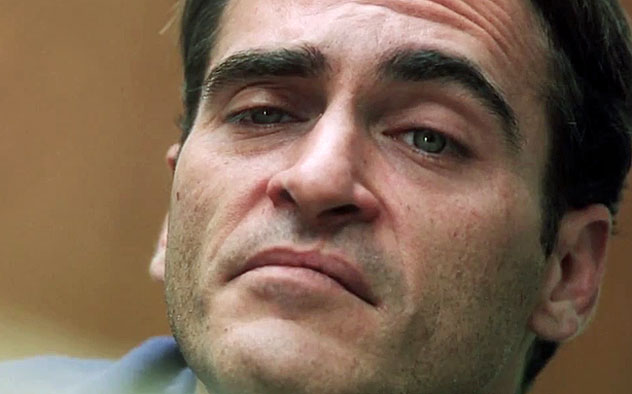The Exterminating
Angel (1962) – Mark it 7.
To enjoy Luis Buñuel’s The Exterminating Angel, you cannot let yourself get frustrated by the
inexplicable. With its repeated scenes
and the random bear cub wandering a mansion, the film is odd from the
beginning. And then it gets odder when
the members attending a bourgeois dinner party are suddenly unable to leave in
the early hours in the morning. At first
people simply find reasons to spend the night, but the surreal quickly sets in
and they all are physically unable to leave the room. An opening into the adjacent hallway is ever
taunting, and madness begins to take over these otherwise prim and proper high
society folk. Just don’t try to provide
explanations for Buñuel’s choices (the director even said that such attempts are
folly) and you can enjoy a film that will challenge the senses.
Rushmore (1998) – Mark it 9.
Wes Anderson’s resume is not perfect, but I am a big fan
nonetheless. I liked Rushmore, considered by many to be his
greatest work, but hadn’t actually watched it since middle school (before my
tastes matured). Having seen it now, I
can confidently list Rushmore as a
modern classic comedy. Jason Schwartzman
and Bill Murray are fantastic in every seen as Schwartzman’s Max Fisher, the
busiest high school student in cinema history, and Murray’s Herman Blume,
millionaire businessman, develop and test their friendship over a woman. But those Wes Anderson-y touches are the star
of Rushmore. He mixes witty dry dialogue,
bizarre characters, a killer soundtrack, and a visual style that is truly
unique – without becoming self-indulgent (which I felt about his weakest
effort, The Darjeeling Limited). And most importantly, Rushmore is hilarious.
Margaret (2011) –
Mark it 7.
Despite its title, Margaret,
a critical darling in 2011, is the
story of a teenager named Lisa (Anna Paquin) who plays a role in a tragic bus
accident. Shaken by the accident, Lisa
begins a quest to assign someone with blame, to soothe her own guilt and
personal troubles. Margaret takes this premise and opens the narrative up to a huge
web of characters in Lisa’s life that are affected by the accident. The acting is powerful all around as we try
to make sense of Lisa’s (possibly selfish) commitment to hold someone
accountable for a death in which she is partly to blame. Her relationships suffer and people are hurt
while she pieces together her guilt-ridden life.
Margaret may not have blown me
away, but there is no denying its power.
I look forward to watching the highly acclaimed three-hour plus director’s
cut, which supposedly gives each peripheral character more room to breath and
enriches the overall experience. Perhaps
my appreciation will then grow.
.jpg) Blood Simple
(1985) – Mark it 9.
Blood Simple
(1985) – Mark it 9.
.jpg) Blood Simple
(1985) – Mark it 9.
Blood Simple
(1985) – Mark it 9.
It had been so long since I saw the Coen Brothers’ debut
film that it felt as if I was watching it for the first time. That film, Blood Simple, is a master thriller (the Coens’ are so good that
they followed it up with a master comedy, Raising
Arizona). The story of a husband’s
(Dan Hedaya) attempt to murder his adulterous wife (Frances McDormand) gone
horribly wrong plays at times like a haunting horror film. M. Emmett Walsh’s Loren Vissar, the
hilariously villainous private detective hired to kill the wife, is not to be
trusted and the misunderstandings that result increase the danger for all. From then on Blood Simple is a beautifully shot, well-written, well-acted
thriller with palpable suspense, and hints of that Coen dark comedy. I went from lounging on my couch to rigid at
my seat’s end, a sure sign of an effective thriller. The Coen Brothers are simply one of our best.
Youth in Revolt
(2009) – Mark it 6.
It’s nice every once and awhile to spend some time with a
silly sex comedy, and I found Youth in
Revolt to be a pretty enjoyable one.
Michael Cera shines in his typical "Michael Cera role" (not a complaint,
he’s good at it) as Nick Twisp, an awkward and lonely virgin who will go to any
length to reunite with, and bed, his summer fling/first love, Sheeni Saunders (Portia
Doubleday). To do so, Nick must become a
new man: a badass. He fashions an alter
ego, François,
after the French New Wave anti-heroes from the films Sheeni loves so much. François leads poor Nick down some dark, and
funny, paths to win back the girl he loves before the law catches up. Youth
in Revolt is not necessarily a special film, but Cera and the strong
supporting cast (including Blood Simple’s
standout, M. Emmett Walsh) made me laugh enough throughout that I could easily
recommend it. Youth in Revolt is a solid comedy.









